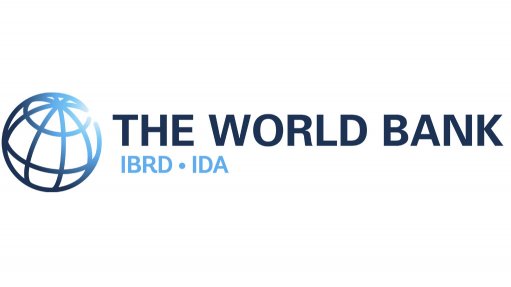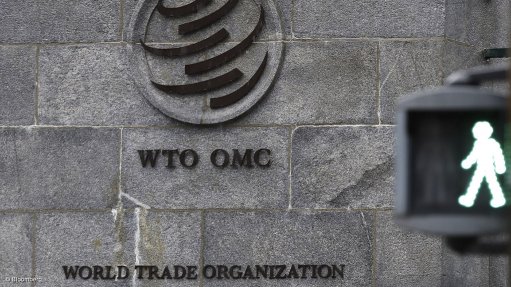‘Get out of Jail Free’ card
The nonalcoholic equivalent of igniting ten fights to a bottle in most South African homes of years gone by was, without doubt, a board game. What would a childhood be without a single memory of a board game that escalated to a battle of wills, culminating in a full-blown fight where tempers flared?
If compulsory ‘postmortem examinations’ were undertaken into the cause of the initial disagreement, the cause, in most cases, would be the rules – not the interpretation of the rules, for the players would have acquainted themselves with the rules; there was generally no time for such distraction. The other day, I acquired a 1960s board game called Minefield. Although the game had visible evidence of wear and tear, the rules were in mint condition. I would bet that not even the best CSI investigator would be able to detect even a partial fingerprint.
So, instead of reading the rules, much emphasis was placed on fallacious assumptions. The most dangerous assumption was that your parents, should you have played against them, had at least during one stage in their life actually read the rules. But, alas, the rules were a matter of legend and myth – a good dose of both in my experience.
Then, seemingly to add to the intrigue of playing board games, my father took it upon himself to introduce what he referred to as ‘enhancements’ (you could also read ‘improvements’) to the rules. These were, of course, neither. At best, they allowed him to increase his odds of winning or not losing.
If I had to single out a board game that put me off board games for life, it would be the one that was invented in 1903 and started its life as The Landlord’s Game. It is said to be the board game second only to Chaturanga in terms of sales and was invented in India in the sixth century AD. I would venture to guess that you have played both games at some stage in your life. The latter is, of course, chess, while The Landlord’s Game is today better known as Monopoly.
Some trivia: Monopoly was created by Elizabeth Magie Phillips in protest against the big monopolists of her time, such as billionaire John D Rockefeller. What you might not know is that she created two sets of rules for her game – an antimonopolist set in which all were rewarded when wealth was created and a monopolist set in which the goal was to create monopolies and crush opponents. Her intent with this dualistic approach was to demonstrate that the first set of rules was morally superior.
But, as with all good intentions, the monopolist version of the board game caught on. In fact, a man by the name of Charles Brace Darrow produced his own ‘knock-off ‘board game version, which he called Monopoly and which he went on to sell to Parker Brothers, the company producing it to this very day. As the adage goes, success has many fathers – but why do its mothers seem to be forgotten? As further proof of how unfair life is, while Darrow is said to have made millions, Phillips was rumoured to have made a mere $500. (At least another Elizabeth is getting one over a Charles – while she reigns, he has to patiently await this turn. When will Prince Charles’ wait be over?)
In Monopoly, depending on the version you own or play, there are two cards: Opportunity, also called Chance, and Community Chest, which you can pick up if you land on that space on the board.
There was a single desired Opportunity card that reverberated in my mind earlier this month as the National Prosecuting Authority laid criminal charges against Finance Minister Pravin Gordhan and as President Jacob Zuma’s battle to avoid having his day in court to face 783 criminal charges raged. How desired that single Opportunity Monopoly card, the Get out of Jail Free card, would be if it had application in present-day South Africa. The Get out of Jail Free card is described as something that allows you to avoid an unpleasant result of your actions, something that will immediately resolve or relieve an undesirable situation, especially one that results in minimal or no consequences, and something that allows or is used as an excuse for poor decisions, results, standards, behaviour, and so on.
According to the Monopoly rules, in the instance of the Get out of Jail Free card, if the player who draws it does not wish to use it, then he or she may sell it, at any time, to another player at a price agreeable to both. Could reality be imitating the board game of Monopoly?
Should South Africa not introduce a Get out of Jail Free card? Perhaps one exclusively for politicians? As for the introduction of such a card in South Africa, lawyers might well want to consider legal precedence. Well, would you believe that the prize in Britain’s first lottery, commissioned by Queen Elizabeth I and Sir Frances Drake in 1567 to raise funds for England’s navy, included a kind of Get out of Jail Free card? The winner could use this card to be pardoned for any but the most serious crimes. But perhaps the charges against those in South Africa who would desire such a card would qualify as the most serious crimes.
But then there are also those who would attempt to use the Get out of Jail Free card, even if it has no application. In 1967, James Robert Ringrose, one of the Federal Bureau of Investigations’ (FBI’s) ten most wanted fugitives, presented a Get out of Jail Free card to FBI agents on being arrested.
Unfortunately, South African society has degenerated into one that seemingly values the accumulation of money (wealth) above all else. Collecting and gathering wealth at all cost – irrespective of the cost to others – rather than contributing has become the main goal of many in our society. The board game Monopoly gave us two metaphors, one of which I have detailed above, with the other being ‘Do not pass Go. Do not collect $200.’
South Africans, some more than others, would do well to not pass Go, but rather to heed the words of William Arthur Ward: “Do more than belong; participate. Do more than care; help. Do more than believe; practise. Do more than be fair; be kind. Do more than forgive; forget. Do more than dream; work.”
Good News for the Boks
Also wanting a ‘good story to tell’, I came across an article by Anje Rautenbach, which was published on October 13 and was titled ‘Here are your SA visa-free destinations: Coming soon, Europe’. Well, after their recent drubbing by the All Blacks, the Springboks might find consolation in the fact that South Africans will, as of November 21, no longer enjoy visa-free entry into New Zealand. If ever the Springboks had an excuse to not visit New Zealand for its next test scheduled in Auckland on September 16, 2017, then they have one now.
The interesting thing from this article is the countries that South Africans can enter without a visas. In Africa, the countries are Benin, Botswana, Gabon, Kenya, Lesotho, Malawi, Mozambique, Namibia, Saint Helena, Swaziland, Tunisia, Zambia and Zimbabwe, while those in South and Central America are Argentina, the Bahamas, Barbados, Belize, Brazil, Chile, Colombia, Costa Rica, Dominica, Ecuador, El Salvador, Grenada, Guatemala, Guyana, Haiti, Honduras, Jamaica, Nicaragua, Panama, Paraguay, Peru, Saint Lucia, Saint Vincent and Grenadines, Uruguay and Venezuela. The European countries are Reunion Island (yes, the island next to Mauritius), while the Asian and Middle Eastern countries are Indonesia, Israel, South Korea, Malaysia, the Philippines, Singapore, Thailand, Hong Kong and Macau. The Oceanian countries are the Cook Islands, Fiji and Vanuatu.
Have you noted the number of countries with which South Africa has preferential trade agreements that do not provide South Africans with visa-free entry? With the exception of Reunion, none of the 28 European Union member States do. Further, none of the European Free Trade Association member States do, eight of the 15 Southern African Development Community member States do and the US also does not. Actually, none of the North America Free Trade Association member States do. Why is this so? How can this be? South Africa’s goods are granted preferential, unrestricted market access into these markets, but its people’s movement is restricted. Does this not strike you as being odd?
As for The Rugby Championship (TRC), the Springboks have visa-free entry only into Argentina. However, considering the Springboks’ performance against the Pumas in this year’s TRC, the introduction by Argentina of visa requirements might provide the excuse that the Springboks would need not to travel to that country.
Comments
Announcements
What's On
Subscribe to improve your user experience...
Option 1 (equivalent of R125 a month):
Receive a weekly copy of Creamer Media's Engineering News & Mining Weekly magazine
(print copy for those in South Africa and e-magazine for those outside of South Africa)
Receive daily email newsletters
Access to full search results
Access archive of magazine back copies
Access to Projects in Progress
Access to ONE Research Report of your choice in PDF format
Option 2 (equivalent of R375 a month):
All benefits from Option 1
PLUS
Access to Creamer Media's Research Channel Africa for ALL Research Reports, in PDF format, on various industrial and mining sectors
including Electricity; Water; Energy Transition; Hydrogen; Roads, Rail and Ports; Coal; Gold; Platinum; Battery Metals; etc.
Already a subscriber?
Forgotten your password?
Receive weekly copy of Creamer Media's Engineering News & Mining Weekly magazine (print copy for those in South Africa and e-magazine for those outside of South Africa)
➕
Recieve daily email newsletters
➕
Access to full search results
➕
Access archive of magazine back copies
➕
Access to Projects in Progress
➕
Access to ONE Research Report of your choice in PDF format
RESEARCH CHANNEL AFRICA
R4500 (equivalent of R375 a month)
SUBSCRIBEAll benefits from Option 1
➕
Access to Creamer Media's Research Channel Africa for ALL Research Reports on various industrial and mining sectors, in PDF format, including on:
Electricity
➕
Water
➕
Energy Transition
➕
Hydrogen
➕
Roads, Rail and Ports
➕
Coal
➕
Gold
➕
Platinum
➕
Battery Metals
➕
etc.
Receive all benefits from Option 1 or Option 2 delivered to numerous people at your company
➕
Multiple User names and Passwords for simultaneous log-ins
➕
Intranet integration access to all in your organisation


















